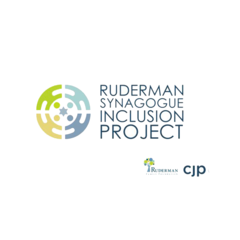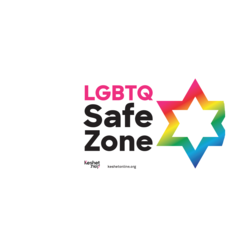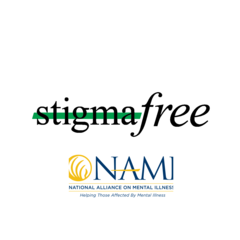Yom Kippur 2015
Once I turned 5, I joined my older brothers for a weekly dose of Judaism every Sunday at a temple religious school. At first, it wasn’t too bad because we lived only 15 minutes away from the temple. But when I was 9, my family moved to Findlay, Ohio. The closest temple was about 60 miles away. During the hour drive, my father puffed cigarettes. He refused to stop despite my complaints about the smoke seeping into the back seat where I sat squeezed between my two brothers. When I got to the religious school in Lima, I didn’t really know any kids well. I was bored and uncomfortable. The best part was afterwards when we went out for lunch. My most vivid memories of Sunday school are of a Wendy’s cheeseburger and fries and Dad’s cigarette smoke.
Through childhood, I was an ambivalent Jew. Both my parents were Jewish, but neither grew up in a religious home. We never went to Shabbat services. We did Cliff’s Notes versions of Passover. Four Questions. OK. Done. But in public school, I was constantly reminded that I was a Jew. It started the first week in Van Buren schools.
This woman came into my fourth-grade classroom and had us sing Jesus Loves Me. She told us how Jesus had performed miracles. My parents got me excused from those weekly Christianity classes, but the effects of the Church Lady lingered. My peers noticed that I was the only one who left each week when the Church Lady entered.
“Why can’t you sit in the class with us?” a classmate asked me.
“I’m Jewish.”
“What do you mean, ‘You’re Jewish?’
I paused, unsure how to answer. What is a Jew? Being Jewish meant I was not Christian. It meant I didn’t believe Jesus was the son of God. Yet, I was not sure what I or other Jews believed during my childhood. While most of my Christian friends went to church every Sunday for services, my family never went to temple on Friday nights.
Peers jumped to their own conclusions about Jews. “You don’t believe in Jesus? You’re going to Hell.” I heard that repeatedly from fourth through 12th grade.
By age 12, I had joined my middle brother Kevin as a Sunday school dropout. I created a jaded definition of what it meant to be a Jew. To be a Jew: hover on society’s sidelines, trying to blend in, yet constantly being pushed away. To be a Jew: Be different and alone. To be a Jew in a town where there are almost none: live in apprehension of what someone might do or say. To be a Jew, too, meant an obligation to survive in the face of ignorance and prejudice.
When I was a freshman in high school, someone used soap to draw swastikas on windows of our home and on my brother Kevin’s lime green Barracuda. No one was caught, but for several mornings on the bus ride to school, Kevin and I heard whispers about the marks on our windows.
Soon, Kevin got permission to drive me to school in his car. We sang along to the hits of the ‘80s, songs like John Cougar’s “Hurts So Good,” Pat Benatar’s, “Hit Me With Your Best Shot,” and Billy Joel’s “Big Shot.” We weren’t the Jewish kids on that ride to school. We were just two teenagers enjoying life at its loudest decibels.
Kevin went to Ohio University, and two years later, I went to Northwestern. We were at different colleges, but remained best friends. We planned to live in the same town after college. Our colleges had ample-sized Jewish populations. For the first time, I made Jewish friends. Every year, during college, I went to a seder at a friend’s house where her family did a full, animated reading of the Hagaddah. But I didn’t yet feel a strong pull toward my faith. For many years, I felt like a stranger in my own faith because I understood so little.
I tiptoed closer to Judaism because of tragedy. On March 1, 1986, my middle brother Kevin was killed in a car accident after apparently falling asleep at the wheel. He was 23. I was 21. A rabbi I didn’t know gave the eulogy. He led us in the Mourner’s Kaddish and I mumbled along by reading the Hebrew transliteration. I didn’t have a clue what it meant. All I knew was my heart was breaking in two. I had lost my beloved brother and best friend. My parents crumpled before me at the funeral. I had never believed in God before. How could I pray to God?
For the next three years, I searched for solace. Judaism, still such a bit player in my life, played no role. I quit my first two reporting jobs because of my tumultuous reaction to grief. I struggled to handle both the first and second anniversaries of my brother’s death.
Exactly when and how I never knew, but March once again became a month of hope. Eight years, nine years, a decade passed, and I no longer acted as if a “bereaved sibling” badge was pinned to my chest. I was finding ways to live in peace without my brother and still remember him. I inched toward more Jewish traditions, annually lighting a memorial candle, taking comfort in the light that flickered for 24 hours.
In my early 30s, I traveled to Israel for the first time as part of a Jewish group’s bike trip. At the Western Wall, I slipped a piece of paper in a crack, a small note I wrote in memory of Kevin. Then, I composed a silent prayer: “Let me remember my brother always. Let me, though, have a full life without him. Make my life not about death, but about living.” It was a first for me, experiencing something spiritual as I stood side by side with women who beseeched God to hear their prayers.
I was no longer a reluctant Jew. Working as a reporter in Dallas, I joined a temple for the first time in my mid-30s. I had become more involved in Judaism through singing in temple and community choirs. The Dallas chorus director composed most of the songs we sang and explained what each prayer meant. Singing in that chorus became a major step toward bonding me closer to Judaism. I moved from Dallas to Boston at age 39. I didn’t join a temple at first, but got to know Rabbi Rim Meirowitz from Shir Tikvah in Winchester after he officiated at my grandmother’s funeral. He noticed my budding interest in Judaism and asked me to join an adult bat mitzvah class. I said yes, and at age 41, I celebrated my adult bat mitzvah at Temple Shir Tikvah. I gave a d’var torah about how Judaism creates a structure for grief, a structure I wished I had understood and embraced when my brother died.
In 2006, just six months after my bat mitzvah, I married Pavlik Mintz, who already lived in Lexington. Together, we chose Temple Isaiah as our Jewish community. We had easily become a part of the community after joining the chorus then led by Cantor Robbie Solomon. I’ll end this story of my Jewish journey by reading the final passage of an essay I wrote called “Modim.” The essay draws from the prayer Modim Anachnu Lach and a song of the same name that Robbie wrote. I accompanied him on the flute on that song at a Shabbat service.
“A mother. A wife. An increasingly observant Jew. I was in a place I once thought impossible. It was as if my life were beginning anew. My husband Pavlik sat in the second row in the sanctuary. Perched against Pavlik’s broad chest was our baby, Simon Kevin, who watched me with eyes the same shade of blue as mine and who in the darkest moments gave me reason to smile. Gifts were all around. The music flew easily from my fingers and lips as the song glided to its gentle close. Maybe my gratitude was for what I finally had - faith.”
Today, I still have that same feeling when I look out and see Pavlik and Simon, who’s now 7. My gratitude is partly for the fact that I have them. Love and motherhood came to me late in life, past 40. My gratitude, too, is for finally figuring how to connect to Judaism and the community it can create. When my brother died, a part of me closed for a while. There were few places where I felt comfortable even acknowledging that I had lost my brother. Getting closer to Judaism helped me find that comfortable place. Every March, I come here to a Shabbat service and say the Mourner’s Kaddish for Kevin. I now know what the words mean, but that’s not what’s important. Most of all, I stand up and know I’m surrounded by people who care, whether or not they know the details of my loss. Some do, and they offer a hug. Judaism has given me a gift, a way to confront life’s sorrows and embrace its joys.
©2017 Temple Isaiah • 55 Lincoln Street • Lexington, MA 02421 • 781-862-7160 • Login





